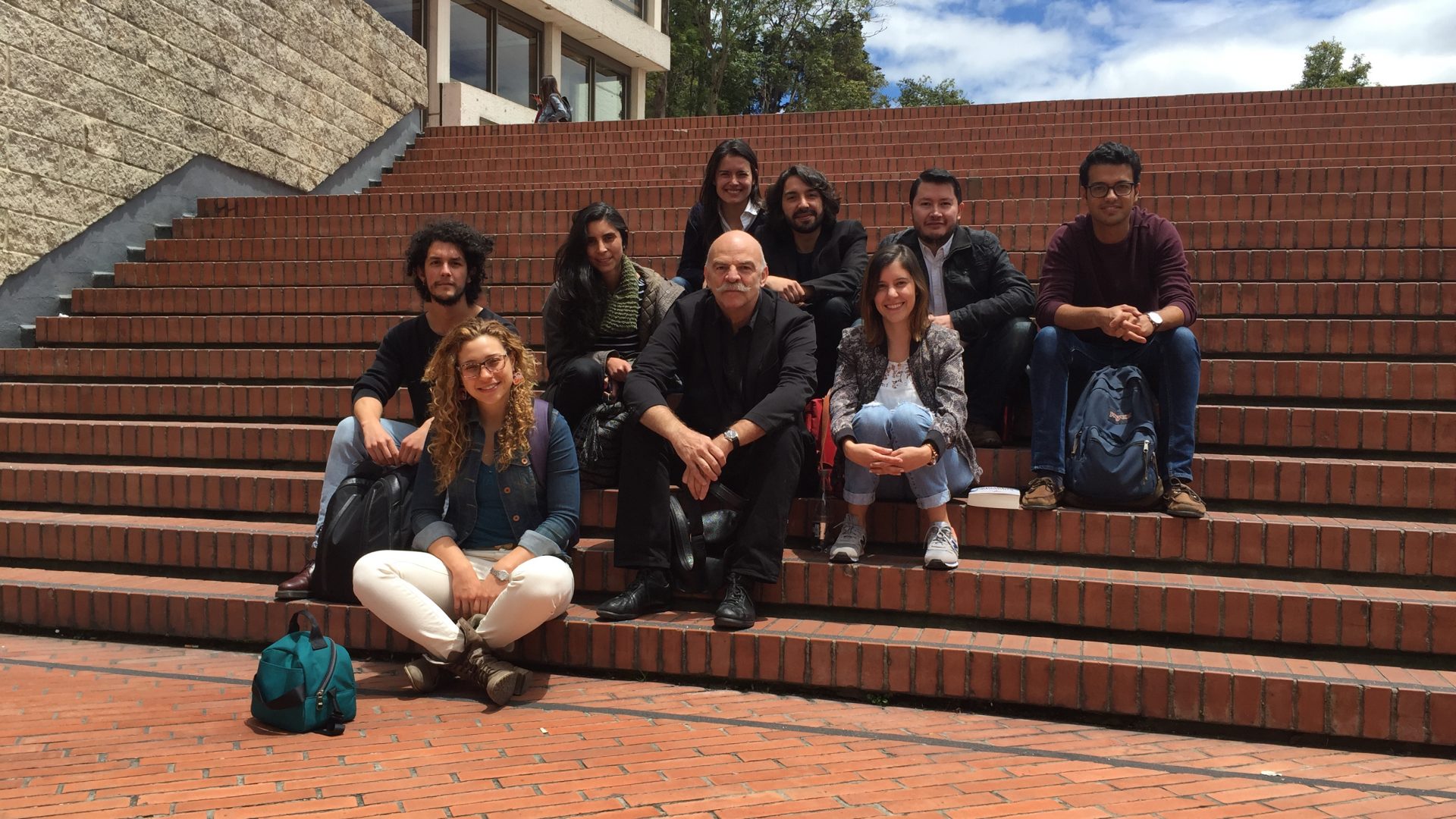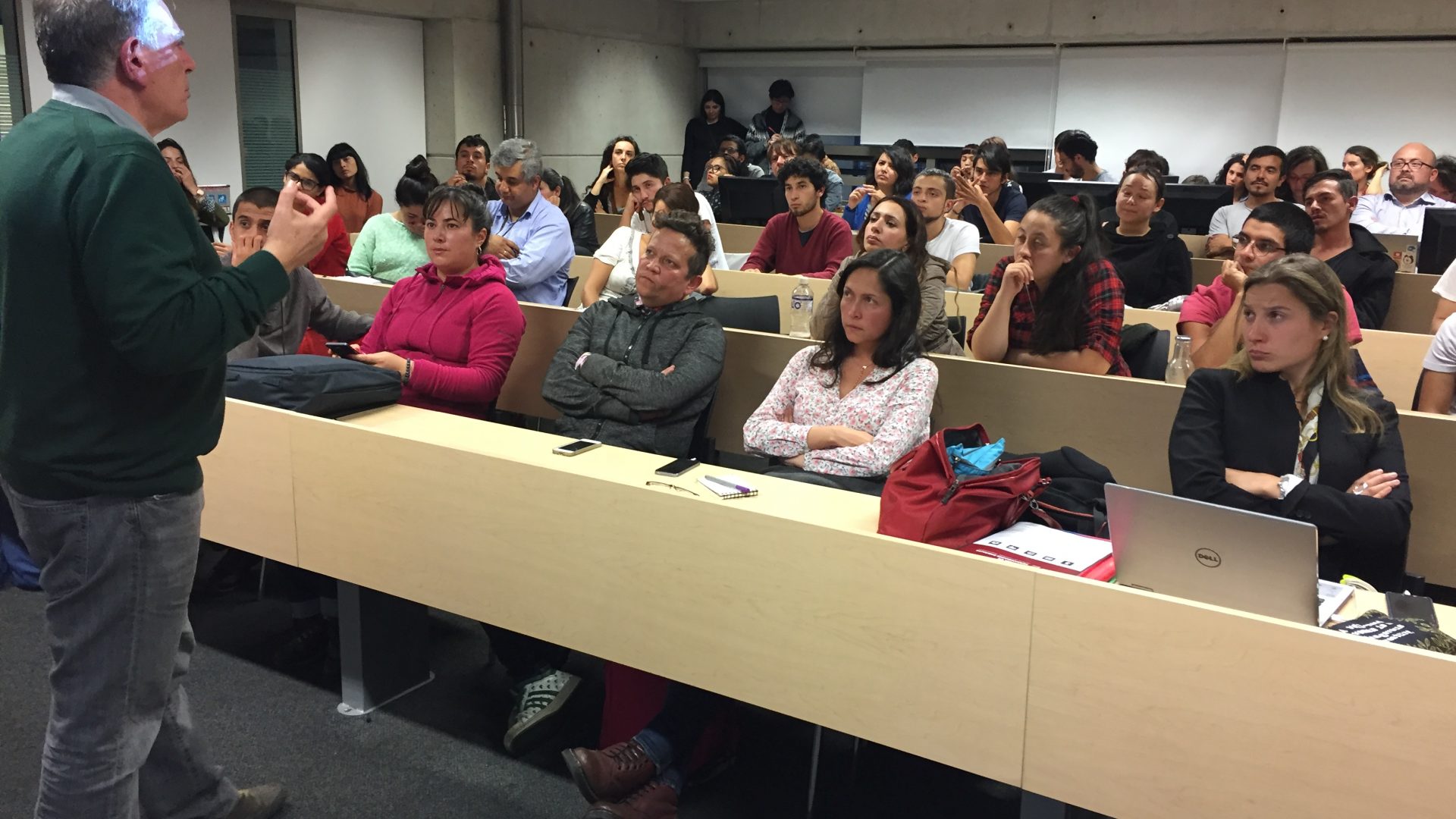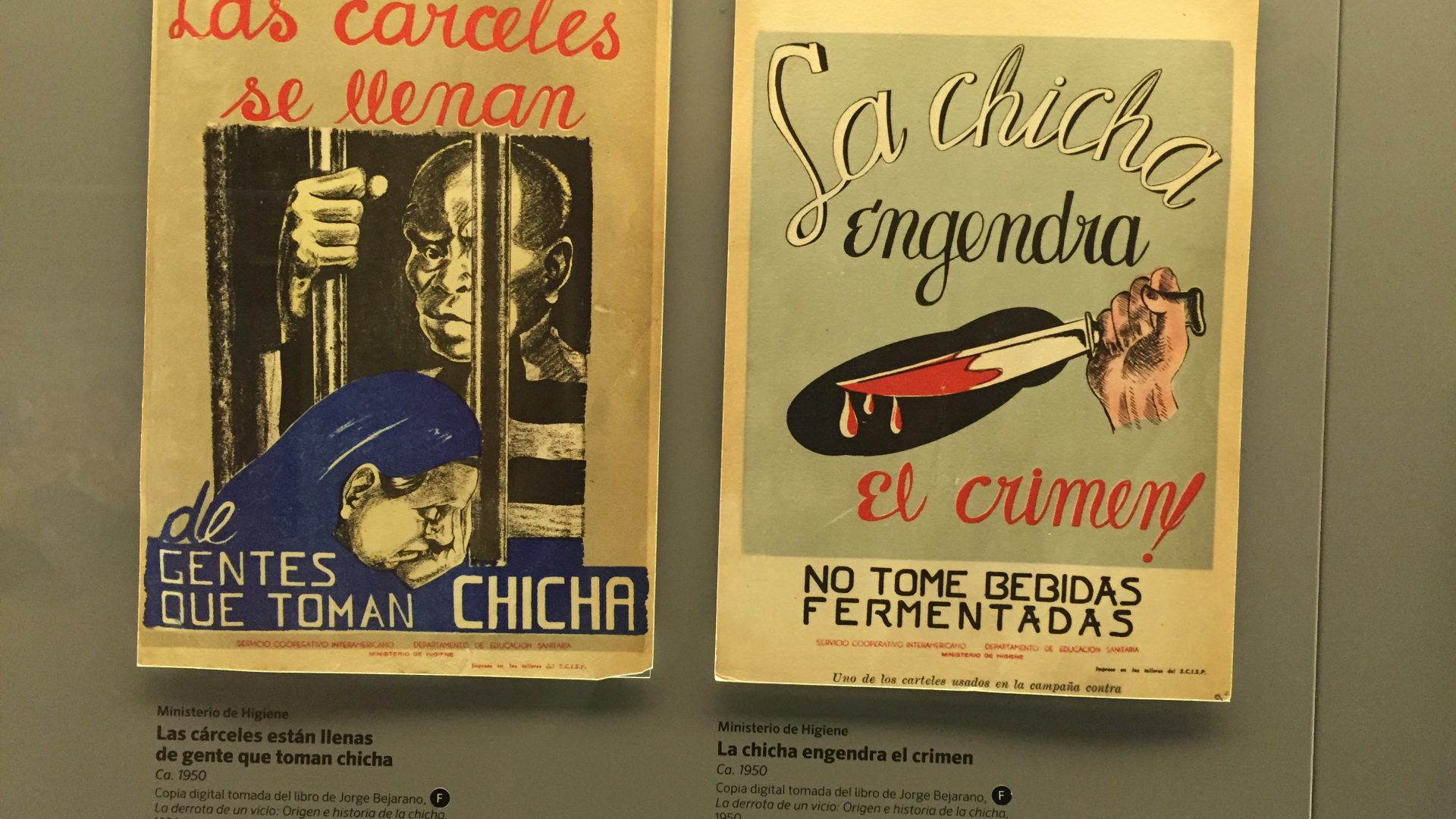


CEPER [Centro de Estudios en Periodismo] is a research and creation academic unit attached to the School of Arts and Humanities at Universidad de los Andes. Since 1991, CEPER has been devoted to research on journalism and the media, journalistic production and academic training, bearing in mind the debate on the future of journalism and advising as well as consulting for the media, public, and private institutions.
Universidad de los Andes created CEPER because it believes that the quality of democracy and public life depends on excellence in journalism and the media. Consequently, los Andes decided that training in journalism should be toaught at the graduate level and that research in journalism required a transdisciplinary approach.
The history of journalism at the University has had the following moments:
[1991] Creation of the CEPER (Center for Journalism Studies). CEPER was created as a research unit attached to the President’s office and with professors from various disciplines of the University, such as Law, Political Science, and Social Sciences. Its founding mission was to research the journalistic and democratic quality of the media and to offer training courses for journalists and media executives.
[1993]
CEPER introduces its graduate programs. In 1993, CEPER opened the first graduate program in Journalism in Colombia. It aimed to train professionals —not necessarily journalists or communicators— in narrative journalism, with active professors in journalism and the media. The courses cover journalistic genres and journalism according to the media. By 2011, CEPER had graduated 18 classes and trained 310 professionals in Journalism, with an average of 17 students per cohort.
[2000]
CEPER starts offering courses for undergraduate students of the University. In 2000, CEPER began to offer journalism courses for all university undergraduate students. The first courses were “Media, journalism and power,” “Cultural and literary journalism,” and “Chronicles and journalistic reports.”
[2008]
The Academic Minor in Journalism is approved. The Board of Trustees of the University approves the minor in Journalism for undergraduate students of the Universidad de los Andes. The minor is an optional field of study that requires taking five subjects or 15 credits in an area of knowledge. CEPER offers eight subjects for the student to choose 5; these are “Media, journalism and power,” “Media Laboratory,” “Chronicles and journalistic reports,” “Great stories of journalism,” “Cinema, journalism and culture,” “Colombia: stories of the journalistic nation,” “From Greece to the Internet,” and “Cultural journalism.”
[2009]
The School of Arts and Humanities is a pioneer in understanding and promoting artistic creation in the areas of literature, music, and arts as a valid activity for its professors’ research work and knowledge production. Similarly, CEPER endorses journalistic creation as a research activity for its professors. In 2009, journalistic creation was approved as research.
Document approved by the CEPER Committee (March 8, 2010), the Research and Creation Committee of the School of Arts and Humanities (March 10, 2010), and the School of Arts and Humanities Board (April 13, 2010).
[2009]
The University’s Executive Committee approves the Master’s Degree in Journalism (Session #263-09 of April 1, 2009 – Universidad de los Andes Executive Committee).
[2010]
The Colombian Ministry of Education assigns the Quality Assurance Registration to the Master’s Degree in Journalism (SNIES Code: 90686 + Registration: Resolution 5297 of June 25, 2010, of the Ministry of National Education).
[2011]
Master’s Degree in Journalism.
[2011]
Creation of the digital media outle Cerosetenta to produce journalism from a university perspective and as a way of integrating the journalistic work of professors and students.
[2012]
The Journalism Agency – Media Lab of CEPER is born, offering design, production, and diffusion services of journalistic pieces and strategies in digital formats to university units and external entities.
[2013]
Begins the Media in Colombia project that visually gathers the figures and data of the country’s media sector.
[2014]
The offer of elective courses for the journalism minor extends with two new General Education courses: “Travels through leisure and entertainment” and “Communication and technology in time.”

